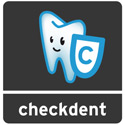 Dentists often forget to tell patients what to do after getting dental work!
Dentists often forget to tell patients what to do after getting dental work!
So here are some advices after dental treatment.
What should you watch out for?
What rules are there to follow?
The suggestions below are general information. If your pharmacist gives you other instructions, then you should follow them!
The Dental News team wishes you a speedy recovery, these tips will help you smile again!
- Leave the swab in for another half hour after treatment, then you can spit it out, unless your dentist has given you other instructions
- Keep the area which has been operated cool, e.g. using a Cool Pack (ice), not directly on the skin, but wrapped in e.g. a towel
- Do not eat as long as the area is still numb, and remember to chew on the other side
- Avoid nicotine and alcohol, as well as spicy, crumbly or raw foods, and milk products for the first three days after the operation
- Do not pull on your lip/cheek, no „peeking in front of the mirror“
- Do not start cleaning your teeth again until two days later (do not use a toothbrush around the wound, but use a cotton swab dipped in 3% H2O2).
- Use mouthwash containing chlorhexidine (e.g. Chlorhexamed) twice a day (not longer than 2 weeks) and several times a day using 3% H2O2 dissolved in water. Rinsing out your mouth using chamomile tea also helps speed up healing.
- Do not point the oral irrigator at the area treated!
- Bruises or swelling in the face (intensifying up to 4 days after treatment), as well as difficulty opening the mouth and a temperature of up to 38.5° C are common after treatment and are no cause for concern
- Avoid sunlight and physical exertion the first couple of days after treatment (no sauna, no sports, no hiking …)
- For operations in the upper jaw and opening of the maxillary cavity no blowing your nose for 8 weeks; do not hold your nose shut when sneezing








